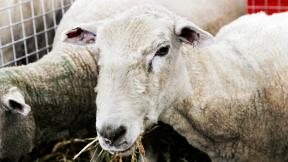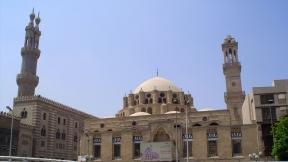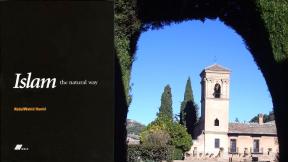
On The Creator
“It is natural and reasonable for man to acknowledge that all creation is preserved through God's will and grace-what is called in English “providence”. If for an instance this providence were to be withdrawn from this world, it would cease to be. It is therefore natural and reasonable for the human being to give thanks or show gratitude to the Creator for all the favours of life.”
(Chapter One: Face to Face with Reality, page 7)
On The Quran
“Yet, the Quran does not require people to believe blindly. It is addressed to ‘people who think', who think about what they can see and hear and observe about themselves and the world about them; [...] Again and again, we are asked to observe, think and question...”
(Chapter One: Face to Face with Reality, page 13).
On Individual Responsibility
“The concept of individual responsibility, of being Mukallaf, is a most dynamic one for individual fulfillment and social harmony. All obligations, whether on you as an individual or on a community as a whole, are designed to encourage and promote the good and beautiful, and to discourage and combat the bad and reprehensible.”
(Chapter Two: You and Your Condition, page 26)
On The Muslims' Duty to Know the Contemporary World
“Muslims have a duty to themselves and to others to know the contemporary world intimately, to be able to analyze it using principles and concepts from the Islamic worldview, from the Quran and the Sunnah, and to offer alternatives for the future direction of man.
If you have talents, the capacity and the resources, and especially if you are in position of authority and responsibility, it is your duty to take on the challenge of contemporary knowledge. This applies particularly if you are a student or teacher at an institution of higher learning. The Muslim ummah and indeed mankind as a whole have a right upon you.”
(Chapter Two: You and Your Condition, page 41)
On Sex Education
“Both the Quran and the Sunnah are explicit on matters of sex and sex education. The object is to create an open, balanced and responsible attitude based on knowledge. Islam is opposed to treating sex as a completely taboo subject which gives rise to feelings of guilt. It is also opposed to treating it in a completely casual and immoral manner without the due regard to modesty and respect that something as intimate and personal as sexual life demands.”
(Chapter Four: You and Your Family, page 79)
On Charity
“Material and economic help is often crucial in relieving people's distress. But to limit charity to tangible things like money and clothes and food is to divide people into receivers on the one hand and givers on the other. This may give rise to humiliation on the one hand and pride and conceit on the other. This may give rise to humiliation on the one hand and pride and conceit on the other. The Prophet by emphasizing that “Smiling is charity” has shown that feeling and sensitivity form the core of human relations. And this should be how callousness, hatred and envy are removed and caring, tender and beautiful neighbourhood and society is created. “
(Chapter Five: You and Your Neighbourhood, page 100)
On Social Life
“Justice is the first principle of social life. It can be shown to govern all relations in life: between ruler and ruled, rich and poor, husband and wife, parents and children. Even in the ordering of an individual's personal ‘s habits, justice must be done to the respective requirements of body, mind and spirit. As we have seen, it is unjust, for example, to neglect your body and its needs in search of spiritual development.”
(Chapter Six: You and the Wider Community, page 110)
On Political Leadership
“Muslims have faced many problems as a result of the political leadership of their societies. Often these had their roots in alien, hereditary or nepotistic practices which have no sanction in Islam. Often, political leadership has been at odds with the learned scholars of the community. This led to injustice and oppression. The ideal situation is for leaders to be scholars and for scholars to be leaders and actively involved in political processes.”
(Chapter Six: You and the Wider Community, page 115)
On Educational Institutions
“Muslims of today need educational institutions that would produce courageous, enterprising, and creative men and women who aim at ihsaan or excellence in all things, and who are able to contribute to the welfare and strength of society. Muslim communities need an education and an outlook that will not make them accept humiliation and oppression. This was the type of education and training that the Sahabah received in the ‘continuous education school' of the noble Prophet. The focus of this education was not fine buildings and expensive equipment but the human mind, heart and body.”
(Chapter Six: You and the Wider Community, page 120)
On Other Faiths
“The initial position of a Muslim to other faiths is thus one of tolerance. More than this, the protection of freedom of belief and worship for followers of other religions has been made a sacred duty of Muslims. Remarkably this duty was fixed at the same time when the duty of Jihaad was ordained:[...]”.
(Chapter Eight: Face to Faiths, page 142)
On Global Issues
“Each individual, each community and each society for the sake of self-interest and survival needs to be concerned with the global fate of mankind and the environment on which man and other creatures of God have their being. But there is above all the satisfaction, pleasure and reward of fulfilling his amaanah or trust that must impel man to have a more active concern for the human condition and the integrity of creation.”
(Chapter Nine: You and Global Issues, page 161)
The Hereafter
“The Hereafter therefore is no ‘pie in the sky' or figment of man's imagination. It is desirable, it is necessary, it is possible, it is real. The Reality of the Hereafter compels an awareness of our long-term future and the need to work for it, with others, here on earth.”
(Chapter Ten: You and Your Hereafter, page 170)








Add new comment